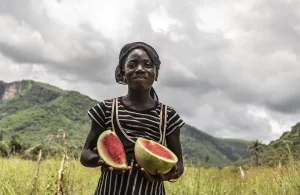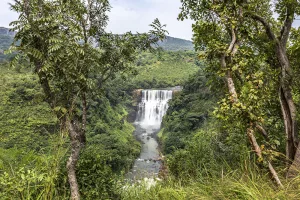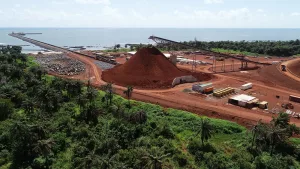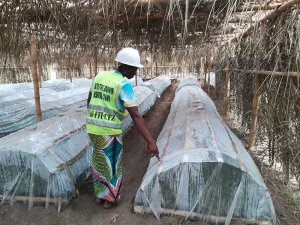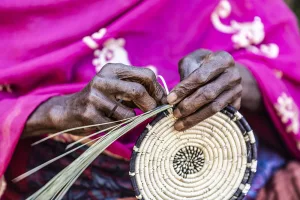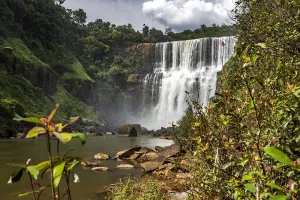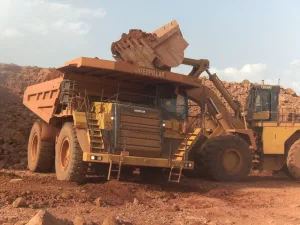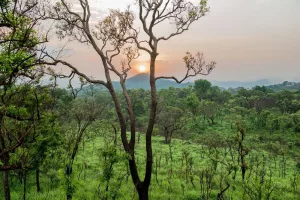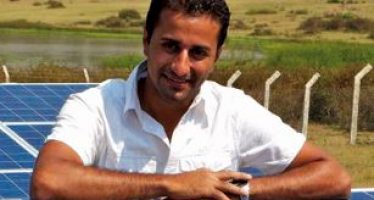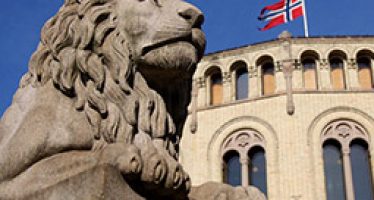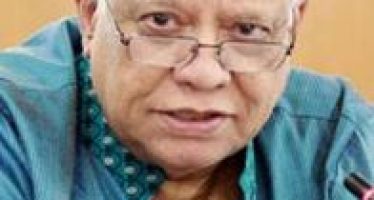Compelling Case for Making Guinea the Destination for Your Next Investment
When you consider the appeals and advantages of the West African country, think beyond extractives…
World renowned as the home of the largest bauxite and untapped high-grade iron ore reserves, the West African nation of Guinea is open for business — and welcoming investors from outside the extractives industry.
The country was recently in the spotlight following the relaunch of the Simandou iron ore project. One of the largest mining projects in global development, the Simandou mine is estimated to hold over four billion tons of ore. The mega project, valued at $15bn, is a joint venture between Rio Tinto, the Aluminium Corporation of China, China Baowu Steel, Winning Consortium and the Guinean company United Mining Suppliers International. As well as iron ore extraction, the Simandou project involves the construction of a port and a cross-country railway.
Guinea’s resource riches are not limited to iron. The country is known as the second-largest producer of bauxite in the world (after Australia). The ore remains the country’s largest export, but refineries backed by government incentives are developing the capacity to locally transform bauxite into aluminium.
While mining continues to be the driving engine of the Guinea economy, other sectors are attracting FDI. Over the past decade, close to $2bn has been invested in the construction of major hydroelectric dams, ensuring energy access to the capital, Conakry, and the major bauxite exploitation zones in the north-west.
With less than 10 percent of its 6,200 MW of hydropower currently exploited, and high potential for wind and solar energy, Guinea is set to become a major exporter of sustainable energy.
The deep-water port and trans-Guinean railroad being built in association with the Simandou mining project typify the national infrastructure boom. Roads and bridges are shooting up, in the seaside city of Conakry and throughout the country, making the transport of people and goods easier than ever.
Housing remains a challenge for the country’s 14 million inhabitants. In the capital alone, there is a shortage of some 500,000 units. This prompted the government to introduce major tax incentives for social housing construction, and create an agency dedicated to financing and constructing decent, affordable housing.
With 59 percent of the population working in the agricultural sector, it has been designated a development priority by Guinean authorities and their partners. The World Bank Group is injecting over $140m to develop agri-business, helping the country take advantage of its 13.9 million hectares of arable land, and over a thousand waterways.
Another sector seeing a sharp rise in interest is tourism. With sandy beaches, lush forests, trekking-friendly terrain and unique fauna and flora, Guinea a sure-fire destination for a boom. Major hotel chains and airlines such as Sheraton, Air France/KLM, Brussels Airlines, Emirates and dozens of others have recently extended their reach in the country. Work has just begun on a $200m public-private partnership in the modernisation and extension of Conakry’s Ahmed Sékou Touré International Airport. Capacity will increase from 500,000 daily passengers to three million by 2025.
With six bordering nations and maritime access, the country’s geographical location is a major plus —particularly for opportunities coming from the African Free Trade Agreement. Also advantageous is Guinea’s generous investment code which offers fiscal and tax incentives. The code guarantees investment security by allowing sole ownership of businesses by foreigners and easing the international repatriation of company profits.
For those considering exploring Guinea as an investment destination, there’s a partner ready to help. The Private Investment Promotion Agency (APIP-Guinée) is nicknamed “the Investor’s One-Stop Shop” for a reason. It gathers all the services an investor might need in one place. From business registration to accessing the incentives of the Investment Code — without forgetting aftercare — the agency helps investors to navigate the Guinean business climate.
APIP will showcase the country’s appeal when it hosts the third edition of its Guinea Investment Forum in early March 2024. The first hybrid expo gathered over 1,600 participants in Conakry in 2021, and the second, in Dubai, brought in 1,400. Conakry is braced to welcome thousands more for the third edition.
From infrastructures to agri-business to green energy and eco-tourism, Guinea offers many alternatives to the extractives industry. When you think of Guinea, think beyond mining.
You may have an interest in also reading…
CFI.co Meets Naeem Mawji
Naeem grew up in Musoma, within the Mara region in North Eastern Tanzania. From an early age, he has been
World Bank Group: A Promising New Resource for Development – The Potential of Sovereign Wealth Funds
Mobilizing finance for long-term, large-scale direct investment in development is a daunting global challenge. However, a growing and potentially vast
Bangladesh: Steadily Moving Up without Beating the Drum
Skipping the usual ado and almost silently, Bangladesh is moving up the ladder and surpassing its local peers in a













































































